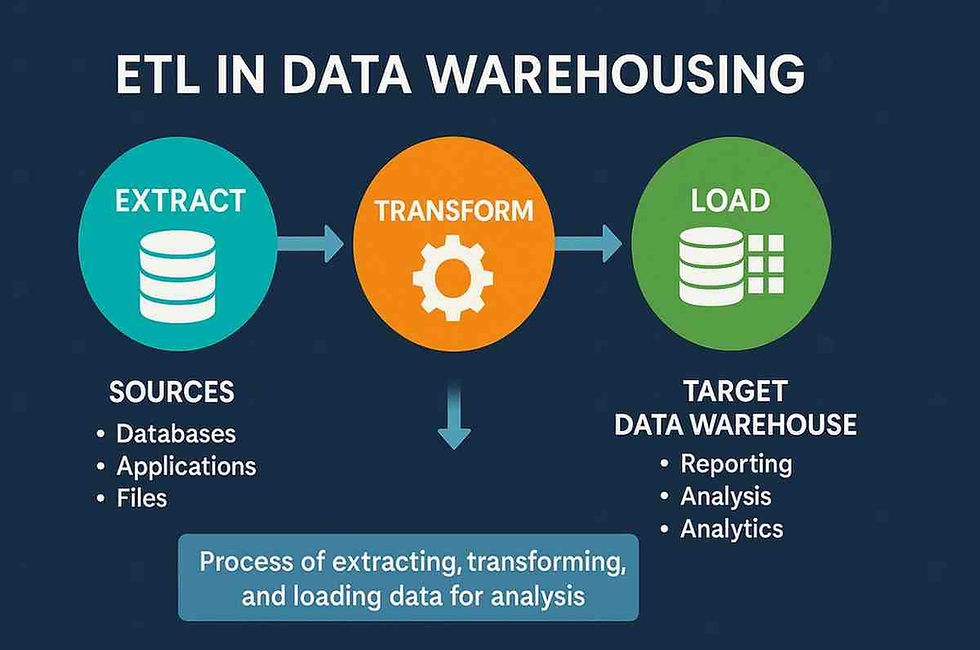SQL Queries Test Guide 2025 - Master Interview Questions & Database Testing
- Gunashree RS
- Jun 10, 2025
- 7 min read
Updated: Jul 8, 2025
Whether you're preparing for a technical interview, validating database functionality, or ensuring data integrity in your applications, understanding SQL queries test is essential for any developer or data professional. This comprehensive guide will equip you with the knowledge and strategies needed to excel in SQL testing scenarios.
In today's data-driven world, SQL testing has become a cornerstone of software quality assurance and technical assessments. From startup interviews to enterprise-level database validation, mastering SQL query tests can significantly impact your career trajectory and project success.
Understanding SQL Queries Test: The Foundation
SQL queries test encompasses various methodologies used to validate database operations, ensure data accuracy, and assess technical proficiency. At its core, SQL testing involves creating, executing, and analyzing queries to verify that database systems perform as expected under different conditions.
The primary objectives of SQL queries testing include:
Data Validation: Ensuring information stored in databases meets specified requirements
Performance Assessment: Measuring query execution times and resource utilization
Integrity Verification: Confirming referential integrity and constraint compliance
Functional Testing: Validating that CRUD operations work correctly across all scenarios
Security Testing: Identifying potential vulnerabilities and access control issues
Modern organizations rely heavily on robust SQL testing frameworks to maintain data quality and system reliability. Understanding database design and normalization, familiarizing yourself with the specific SQL dialect that the employer uses, and solving sample interview questions form the foundation of effective SQL testing preparation.

Essential SQL Query Test Categories
Basic Query Testing
Start with fundamental operations that form the building blocks of complex database interactions:
SELECT Statements
Single-table queries with WHERE conditions
Sorting and filtering operations
Column aliasing and data transformation
Basic aggregate functions (COUNT, SUM, AVG, MIN, MAX)
Data Manipulation Tests
INSERT operations with various data types
UPDATE statements with conditional logic
DELETE operations with safety constraints
UPSERT scenarios and conflict resolution
Data Definition Testing
CREATE TABLE statements with proper constraints
ALTER TABLE operations for schema modifications
INDEX creation and optimization strategies
View creation and maintenance procedures
Intermediate Query Challenges
Progress to more complex scenarios that test deeper understanding:
JOIN Operations Testing:
INNER JOIN for related data retrieval
LEFT/RIGHT JOIN for optional relationships
FULL OUTER JOIN for comprehensive data sets
SELF JOIN for hierarchical data structures
CROSS JOIN for Cartesian product scenarios
Subquery and CTE Testing:
Correlated subqueries for complex filtering
EXISTS and NOT EXISTS conditions
Common Table Expressions (CTEs) for readability
Recursive CTEs for hierarchical processing
Window functions for analytical operations
Advanced SQL Testing Scenarios
Challenge yourself with enterprise-level testing requirements:
Performance and Optimization:
Query execution plan analysis
Index usage and effectiveness evaluation
Resource consumption monitoring
Concurrent access testing
Deadlock detection and resolution
Complex Business Logic:
Stored procedure testing and validation
Trigger functionality verification
User-defined function accuracy assessment
Transaction management and rollback scenarios
Error handling and exception management
SQL Interview Test Preparation Strategies
Technical Preparation Framework
Develop a systematic approach to SQL interview preparation:
Practice Categories:
Basic Syntax Mastery (20% of preparation time)
DDL, DML, and DQL command proficiency
Data type understanding and conversion
Constraint implementation and validation
Query Construction Skills (40% of preparation time)
Complex JOIN scenario problem-solving
Aggregate function combinations
Conditional logic implementation
Date and string manipulation techniques
Performance and Optimization (25% of preparation time)
Index strategy development
Query plan interpretation
Resource utilization analysis
Scalability considerations
Real-world Problem Solving (15% of preparation time)
Business requirement translation
Data modeling challenges
Integration testing scenarios
Troubleshooting methodologies
Sample Test Questions by Difficulty Level
Difficulty | Question Type | Example Focus Area |
Beginner | Basic SELECT | Filtering and sorting single tables |
Intermediate | Multiple JOINs | Combining data from 3+ related tables |
Advanced | Window Functions | Ranking and analytical calculations |
Expert | Optimization | Query performance tuning strategies |
Mock Interview Scenarios
Practice with realistic interview formats:
Whiteboard Coding:
Write queries without syntax highlighting
Explain logic verbally while coding
Handle interviewer questions and modifications
Demonstrate debugging thought processes
Live Coding Sessions:
Execute queries in real database environments
Handle unexpected results and errors gracefully
Optimize queries based on performance feedback
Collaborate with interviewers on requirements clarification
Database Testing Best Practices
Test Environment Setup
Create reliable testing environments that mirror production conditions:
Environment Configuration:
Isolated test databases with sample data
Version control for schema and test scripts
Automated data refresh and cleanup procedures
Performance monitoring and logging capabilities
Test Data Management:
Representative sample datasets for various scenarios
Edge case data, including nulls and boundary values
Volume testing with realistic data sizes
Privacy-compliant test data generation
Automated Testing Implementation
Implement robust automation frameworks for consistent testing:
Unit Testing for SQL:
Individual query validation with expected results
Parameter testing with various input combinations
Error condition handling verification
Performance baseline establishment
Integration Testing:
End-to-end data flow validation
Cross-system data consistency checks
Transaction boundary testing
Concurrent access scenario validation
Employ a combination of manual and automated procedures to validate output data, utilize diverse techniques such as cause-effect graphing, equivalence partitioning, and boundary-value analysis to ensure comprehensive test coverage.
Advanced Testing Techniques and Tools
Performance Testing Methodologies
Implement sophisticated performance evaluation strategies:
Load Testing Approaches:
Concurrent user simulation with realistic query patterns
Resource utilization monitoring under stress conditions
Response time analysis across different load levels
Bottleneck identification and resolution strategies
Scalability Assessment:
Horizontal scaling impact on query performance
Vertical scaling resource requirement analysis
Partitioning strategy effectiveness evaluation
Caching mechanism performance validation
Security Testing Integration
Incorporate security validation into SQL testing workflows:
Access Control Testing:
User permission verification across different roles
SQL injection vulnerability assessment
Data encryption and masking validation
Audit trail accuracy and completeness verification
Compliance Testing:
Data retention policy enforcement validation
Privacy regulation compliance verification
Access logging and monitoring effectiveness
Data anonymization technique validation
Common SQL Test Pitfalls and Solutions
Frequent Testing Mistakes
Avoid these common errors that compromise test effectiveness:
Data-Related Issues:
Using production data in test environments
Insufficient test data volume for realistic scenarios
Inconsistent data state between test runs
Missing edge case data scenarios
Query Construction Errors:
Incorrect JOIN conditions leading to data multiplication
Missing WHERE clauses causing performance issues
Improper NULL handling in conditional logic
Inadequate error handling in complex procedures
Troubleshooting Strategies
Develop systematic approaches to identify and resolve testing issues:
Systematic Debugging Process
Query execution plan analysis for performance issues
Step-by-step result validation for accuracy problems
Log analysis for error identification and resolution
Resource monitoring for scalability concerns
Root Cause Analysis Framework
Isolate variables to identify specific failure points
Replicate issues in controlled environments
Document findings for future reference and learning
Implement preventive measures based on discoveries
Frequently Asked Questions
What are the most common SQL query test questions in interviews?
Most interviews focus on JOIN operations, aggregate functions with GROUP BY, subqueries, and window functions. Expect questions about finding duplicates, ranking data, calculating running totals, and optimizing query performance.
How do I prepare for advanced SQL testing scenarios?
Practice with real datasets, learn query optimization techniques, understand database internals, and work with different SQL dialects. Focus on performance tuning, complex business logic implementation, and troubleshooting methodologies.
What tools are best for SQL query testing?
Popular tools include SQL Server Management Studio, MySQL Workbench, PostgreSQL pgAdmin, Oracle SQL Developer, and cloud-based platforms like Google BigQuery and Amazon Redshift. Choose tools that match your target environment.
How long should I spend preparing for SQL tests?
Preparation time varies by experience level. Beginners should allocate 4-6 weeks of consistent practice, while experienced professionals might need 2-3 weeks to refresh advanced concepts and practice complex scenarios.
What's the difference between unit testing and integration testing for SQL?
Unit testing focuses on individual queries or procedures in isolation, while integration testing validates data flow across multiple systems, tables, and processes. Both are essential for comprehensive database validation.
How do I handle SQL injection testing?
Use parameterized queries, input validation, and security scanning tools. Test with malicious input patterns, validate escaping mechanisms, and ensure proper access controls are implemented throughout your application.
What performance metrics should I monitor during SQL testing?
Key metrics include query execution time, CPU utilization, memory consumption, disk I/O operations, concurrent connection handling, and overall system throughput under various load conditions.
How do I test stored procedures and functions effectively?
Create comprehensive test cases covering all input parameters, validate output correctness, test error handling scenarios, verify transaction management, and assess performance under realistic load conditions.
Conclusion
Mastering SQL queries test requires a combination of technical knowledge, practical experience, and strategic preparation. Whether you're facing a technical interview or implementing database testing in your organization, the principles and practices outlined in this guide provide a solid foundation for success.
Remember that effective SQL testing goes beyond memorizing syntax – it requires understanding business requirements, optimizing for performance, and maintaining data integrity across complex systems. Continuous practice with real-world scenarios and staying updated with evolving database technologies will keep your skills sharp and relevant.
Invest time in building a comprehensive understanding of both testing methodologies and SQL fundamentals. This dual expertise will serve you well in technical interviews, project implementations, and career advancement opportunities in the data-driven technology landscape.
Key Takeaways
• Master Fundamentals First: Build a strong foundation with basic SQL operations before advancing to complex scenarios
• Practice Regularly: Consistent hands-on practice with real datasets improves query construction speed and accuracy
• Focus on Performance: Understanding query optimization and execution plans is crucial for advanced SQL testing
• Prepare Multiple Scenarios: Practice various question types, including JOINs, subqueries, window functions, and stored procedures
• Use Proper Test Data: Create realistic test datasets that include edge cases and boundary conditions
• Implement Automation: Develop automated testing frameworks for consistent and repeatable validation processes
• Learn Multiple Dialects: Familiarize yourself with different SQL variants (MySQL, PostgreSQL, SQL Server, Oracle)
• Understand Business Context: Connect technical SQL skills with real-world business problem-solving scenarios
• Security Awareness: Incorporate security testing practices, including SQL injection prevention and access control validation
• Document Everything: Maintain comprehensive documentation of test cases, results, and optimization strategies for future reference




Developers rely on SQL testing to ensure database accuracy and clean performance. Efficiency in coding leads to fewer deployment errors and faster troubleshooting. Knowing the best spark driver phone number helps professionals reach quick technical support when handling performance tasks. Data-driven precision remains a top priority for modern engineering teams.
Link INDOVIP138
indovip138
indovip138
indovip138
indovip138
indovip138
indovip138
indovip138
indovip138
indovip138
indovip138
indovip138
indovip138
indovip138
indovip138
indovip138
indovip138
indovip138
indovip138
indovip138
indovip138
indovip138
indovip138
indovip138
indovip138
indovip138
indovip138
indovip138
indovip138
indovip138
indovip138
indovip138
indovip138